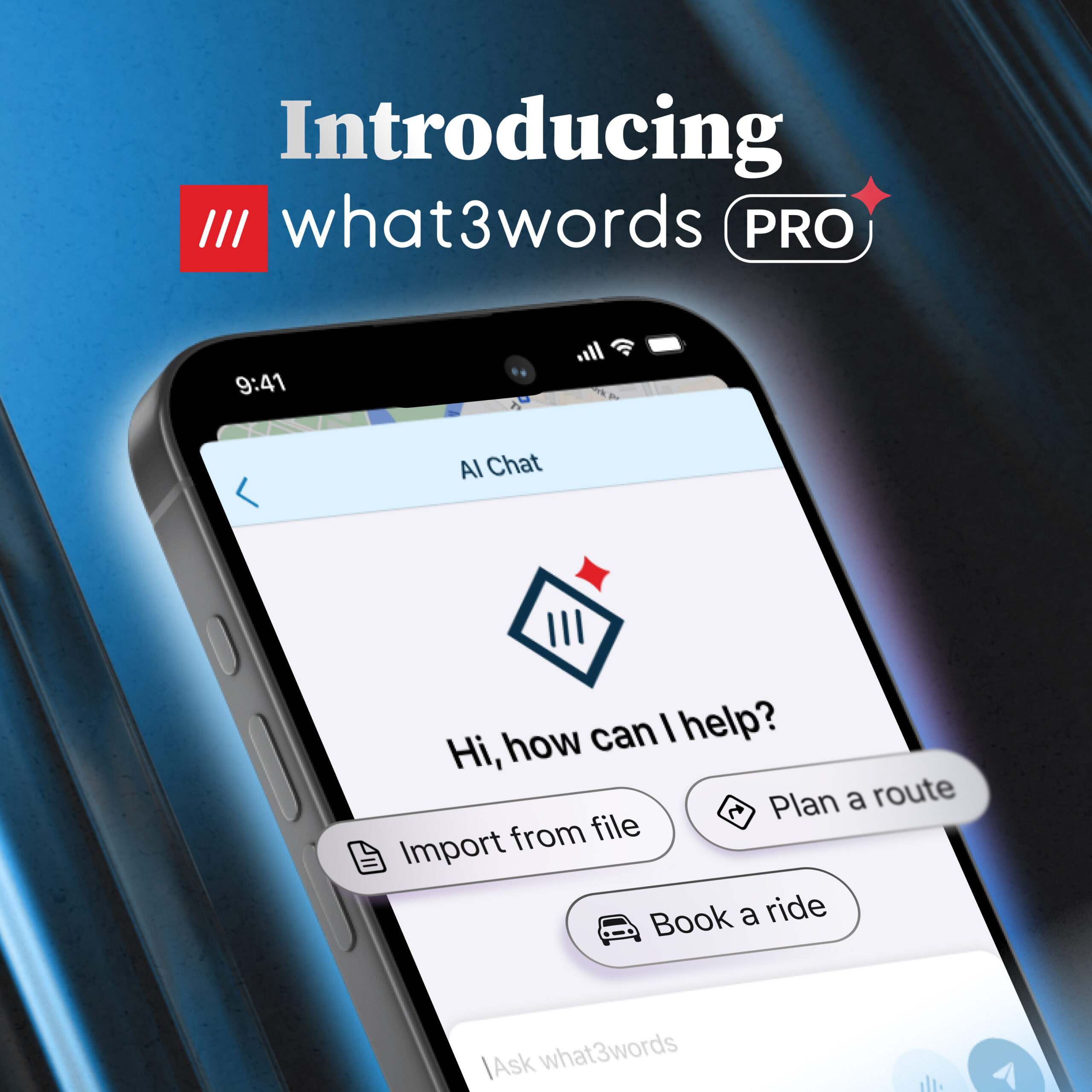
RNIB calls for businesses to use precise what3words addresses
The RNIB (Royal National Institute of Blind People) is collaborating with what3words to encourage UK events, businesses and venues to share precise what3words addresses. The aim is to help blind and partially sighted people always arrive exactly where they need to be.
For people with sight loss, finding specific entrances to buildings, meeting points at busy venues or a taxi drop-off is a daily source of frustration. Journeys to new locations can be an exasperating experience if you can’t see landmarks and other markers.
RNIB recognises that every individual’s experience of sight loss is unique and it works hard to offer comprehensive support for individuals across the UK. There are around 340,000 people registered blind or partially sighted in the UK and an estimated two million people living with sight loss affecting their daily lives. Technology can play a key role in empowering many people to maintain greater independence.
The partnership between RNIB and what3words aims to highlight how inadequate location information remains a significant barrier to independence for many, and how simple it is for businesses to inspire positive change – by finding and sharing what3words addresses.
what3words’ precise addresses can help improve accessibility
what3words has divided the world into 3 metre squares, and assigned each square a unique combination of three random words: a what3words address. For example, ///rooms.herbs.cars indicates the entrance to RNIB’s London office. It makes it easy to communicate specific locations even if they have no street addresses, like a specific building entrance, a spot on the beach or a bus stop.
what3words has been designed with voice input in mind, so people can get directions to exact locations just by speaking three words into their enabled devices.
Businesses use what3words to communicate their exact location
It’s easy for event organisers, businesses, venues and institutions to give people access to more precise location information.
Venues like The 02, Wembley Stadium, Alexandra Palace, University College London, The RHS Chelsea Flower Show, Hyde Park Winter Wonderland and Arsenal FC’s Emirates Stadium has added what3words addresses to its contact information online , confirmation emails, tickets and venue maps.
what3words is also used by over 85% of emergency services in the UK, and the technology has become a valuable tool, saving dispatchers and responders precious time and resources in emergency situations.
Robin Spinks, RNIB’s Senior Manager for Inclusive Design and Innovation said: ‘As someone with sight loss, I know from experience that street addresses often don’t provide precise locations. They might take you to the right building but then you’ve got to work out if you’ve come to the right entrance or need to be on the other side of the building entirely.
Using what3words can help to reduce that anxiety and uncertainty and the extra time saved can be spent catching up with a friend or kicking off a business meeting rather than apologising to them for arriving late.’
Alongside working with the technology sector, RNIB campaigns for more inclusive street design so people with sight loss feel confident getting around our towns and cities.
Chris Sheldrick, co-founder and CEO of what3words added ‘ It’s been amazing to hear from RNIB how technologies such as what3words can make a huge difference to the day-to-day experience of blind and partially sighted people. As businesses across the UK plan for a return to public events this spring and summer, we’re encouraging them to publicise their 3 word addresses to give people more ways of finding exactly where they need to be.’
Do you run events, a business or a venue? Find out how you can use what3words addresses for accessibility .




